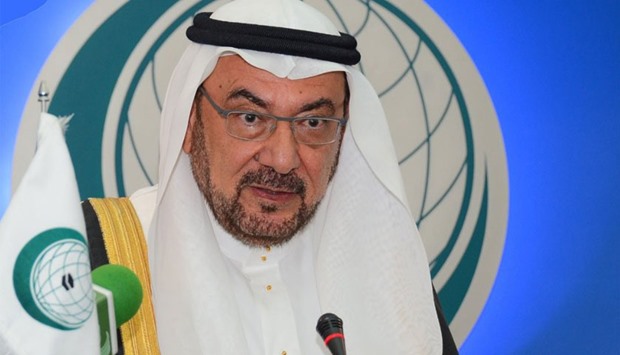The pan-Islamic Organisation of Islamic Cooperation (OIC), which is based in the Saudi city of Jeddah, appeared to take a balanced response to the Riyadh-Tehran crisis after the Arab League and the Gulf Cooperation Council both took stridently pro-Saudi positions.
The dispute escalated after Riyadh's execution of a prominent Shia Muslim cleric, which led Iranian protesters to storm Saudi missions in Tehran and Mashhad. Riyadh cut its diplomatic ties with Tehran in response. Other Gulf countries took varying measures to downgrade ties with Iran.
Without naming Saudi Arabia and Iran, OIC Secretary General Iyad Madani, a Saudi, said that the continued strains in relations between some member countries was contributing to "deepening the fractures in the Islamic political entity".
Warning against widening sectarian tensions, he said the attacks against Saudi Arabia's diplomatic missions had "breached diplomatic norms".
"This situation turns us from effectively addressing the true challenges that threaten the future of our member states and their peoples," he said, before going on to name recent attacks by suspected Islamist militants in Afghanistan, Turkey, Burkina Faso, Cameroon, Libya and Mali.
Saudi Foreign Minister Adel al-Jubeir, who spoke at the emergency OIC meeting which Riyadh had called for, said the attack on the kingdom's diplomatic missions was not an isolated incident, and that Tehran had done very little to end them.
"It is the responsibility of the host government to take measures, not to issue statements aim at deflecting blame more than offering practical protection to diplomatic missions," Jubeir said, according to state news agency SPA.
Iran's deputy foreign minister Abbas Araqchi told Reuters on the sidelines of the meeting:
"My hope is after this conference tension is not escalated, I hope the conference plays its role to deescalate the situation. It's very much hoped by OIC. But apparently some specific countries do not like that. They prefer tension. But tension is in favour of nobody."

